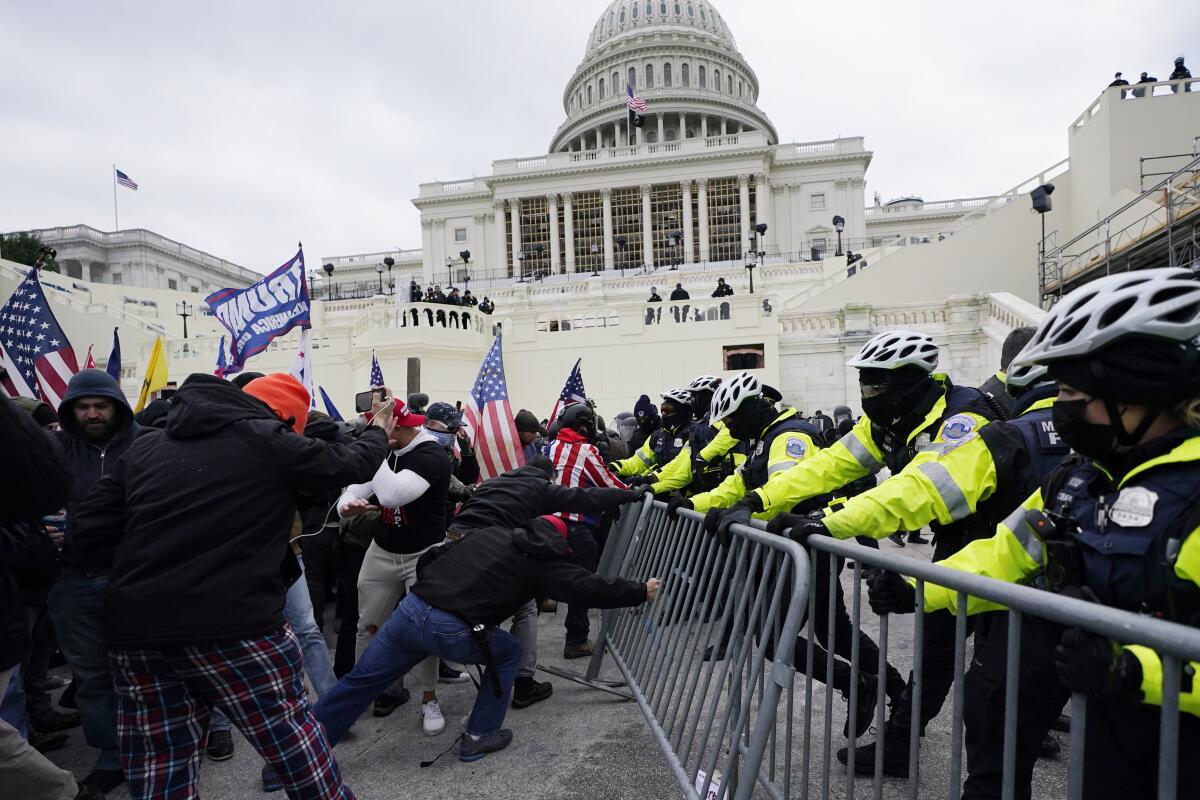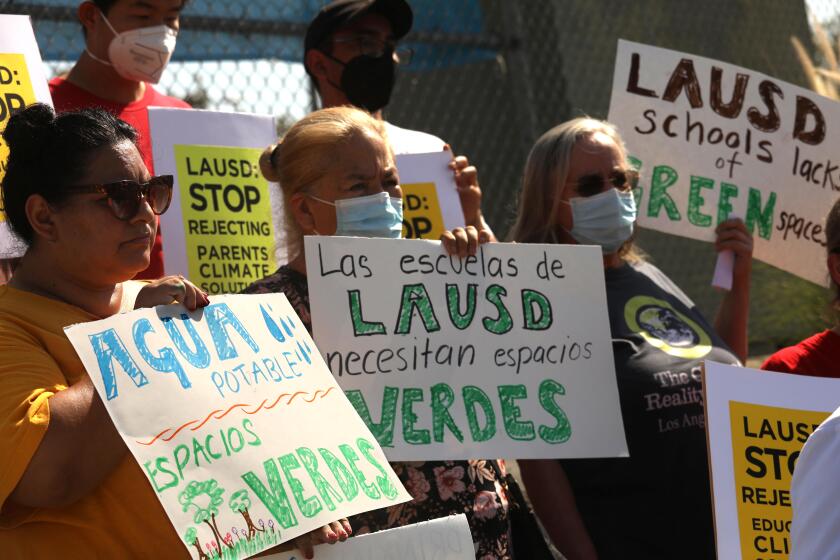Letters to the Editor: Failure to uphold the 14th Amendment has scarred the U.S. Will we do it again?

- Share via
To the editor: It’s a shame the Civil War didn’t end racism along with slavery, and it wouldn’t have been that difficult had Reconstruction been allowed to play itself out. The 14th Amendment, at issue now in the question over disqualifying former President Trump from the ballot, was its cornerstone. (“Why the Supreme Court will probably put Trump back on the ballot in Colorado and nationwide,” Opinion, Jan. 8)
Race is a social and ethnic construct, not a genetic one, and all sorts of truths were being made obvious during the time. At one point in the 1870s, the majority of members elected to the South Carolina Legislature were Black. Suffrage for women and non-property owners was seriously discussed in those days.
The defeat of courage by cowardice has always been this country’s ugliest failure, and it appears we will allow the 14th Amendment to go unenforced again. Trump and his fellow insurrectionists probably will be allowed to run, I have no doubt. It’s disheartening.
Ronald Webster, Long Beach
..
To the editor: I think a lot of people are failing to draw what appears to be the logical conclusion of the intent of Section 3 of the 14th Amendment.
It doesn’t change any qualifications that the Constitution requires to hold these government positions, but adds an exception for a very specific and extremely dangerous situation.
In the case of the office of president, the Constitution doesn’t exclude a candidate who has been arrested, convicted or is in jail for committing a crime. The 14th Amendment doesn’t change that.
This amendment applies only to those who had sworn an oath to the Constitution and failed to uphold it. It’s a question of honor and integrity. This rule has nothing to do with criminality.
Within the government, officer holders are granted power that can have far-reaching effects; the only thing the Constitution asks in exchange is to honor one’s oath to it.
Since this is not a criminal prosecution where someone could lose their liberty, the “due process” standard isn’t an issue. However, the amendment gives a disqualified person a second chance to prove their newfound trustworthiness by petitioning Congress to remove their restriction.
What other criminal or civil prosecutions afford that type of relief?
Bill Lawrence, Hawthorne
..
To the editor: I believe the U.S. Supreme Court will, and should, allow Trump to be on the ballot, but not for the reason given by columnist Harry Litman. Our justice system is based on the idea of “innocent until proven guilty,” and I think it should still be followed.
Much as I detest Trump and all he stands for, as of now he is innocent.
Litman’s reasoning that the justices will put Trump back on the ballot because they are “loath to permit a patchwork result” is contrary to what I believe is the role of the court. Its function is to determine if laws that have been passed are in violation of the Constitution.
I am not aware of anything in the Constitution that disallows a “patchwork.” The author even mentions that control over voting is given to the states, seemingly allowing variations to exist.
Jay Michtom, Northridge






